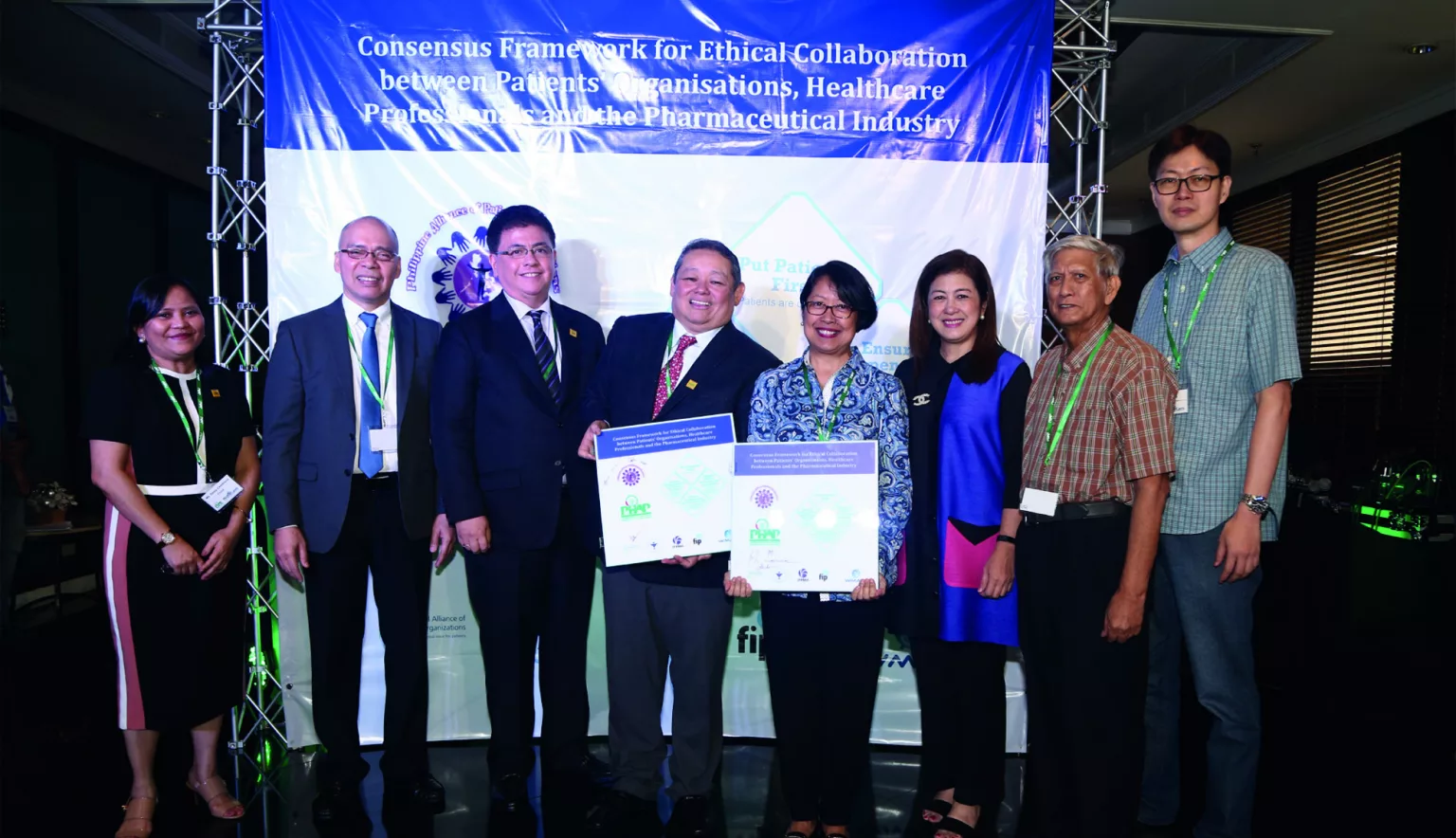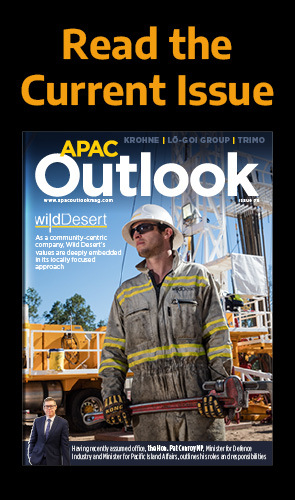For the past 75 years, the Pharmaceutical and Healthcare Association of the Philippines (PHAP) has been at the vanguard of improving the country’s healthcare sector. Executive Director Teodoro Padilla, examines the organisation today.
Q&A WITH TEODORO PADILLA
Can you talk us through the origins of the PHAP; how it came about and its initial vision?
Teodoro Padilla (TP): PHAP was established on July 3rd, 1946, as the Philippine Wholesale Druggist Association. It was founded by 10 men, each representing a leading pharmaceutical wholesaler. Just like the entire country at that time, the pharmaceutical sector was recovering from the ravages of World War II.
As the Association’s original name indicates, it was an organisation consisting of wholesalers, reflecting the state of the industry. In 1950, the organisation was renamed Drug Association of the Philippines (DAP), which stuck for the next 40 years. Membership in the non-stock, no-profit association was expanded to include pharmaceutical manufacturers. By then, the Association took the cudgels in confronting issues that impacted both the industry and the Filipino patients.
In 1991, the organisation was renamed as PHAP to signify a wider representation of participants in the pharmaceutical and healthcare sector. The name also implies its broader role for the Filipino people and the country.
In 2003, PHAP established the PHAPCares Foundation to serve as its corporate social responsibility (CSR) arm. The PHAPCares Foundation undertakes initiatives to improve the health and wellbeing of the sick, disadvantaged and victims of disasters.
From its post-war beginnings, PHAP has assumed a broader role in promoting the growth of the research-based pharmaceutical industry in the Philippines for the benefit of the people’s health, and the country’s development.
Since inception, how has PHAP developed and progressed in terms of its key objectives and the messages it tries to get across?
TP: Since its founding as an industry engaged in the wholesale and importation of finished pharmaceutical products, the country’s pharmaceutical industry, as represented by PHAP, has evolved into one with a crucial role in the health of Filipinos and in the advancement of the economy.
The growth of PHAP over the last 75 years reflects the development of the pharmaceutical industry, a sector which is a key pillar in the provision of quality healthcare for Filipinos then and now in this time of global pandemic.
PHAP works with patients, government, medical professionals and non-government organisations to improve the health situation of Filipinos so they can be healthier and more productive. In 2017, the organisation adopted a new vision to be the leader in advancing access and adoption of innovative therapies for a healthier citizenry towards nation building. The new mission is to bring together stakeholders to advocate for policies and practices that encourage access to innovate life-saving therapies for Filipinos.
The adoption of the new vision and mission came just before the World Health Organisation (WHO) declared a global pandemic which continues until today. The rapid spread of the novel coronavirus across the globe is an ongoing major public health threat for all, with profound health, social and economic impacts around the world, the Philippines included.
The adoption of innovative therapies to contribute to a healthier citizenry and a more resilient economy is taking centre stage as the world battles COVID-19. Now more than ever, there is a need for the sick to continually access innovative medicines that could potentially save their lives. The pandemic has also resulted in unprecedented collaborations, bringing together the industry and all stakeholders to work together for policies that will encourage access to innovative medicines, vaccines and diagnostics.
As a science-driven industry, the research-based biopharmaceutical industry is uniquely positioned to respond rapidly to COVID-19. It has deep scientific knowledge gained from decades of experience working on developing solutions for combatting a range of infectious diseases such as MERS, SARS, Ebola and influenza, as well as experience working with health authorities and regulators to find a fast-tracked approach to bringing safe and effective medicines to market for patients. At present, biopharmaceutical companies are committed to developing treatments, vaccines and diagnostics for COVID-19.
PHAP and its members are closely monitoring the COVID-19 situation globally and in the Philippines. We stand with the government, our frontliners, and the nation in the fight against COVID-19. PHAP and its members are doing our best in three ways: the research and development of medicines, vaccines and diagnostics; helping ensure the uninterrupted supply of medicines despite major challenges like global lockdowns; and through our CSR initiatives.
Prior to COVID-19, PHAP commissioned a national survey on the Filipino people’s desire for Universal Healthcare as early as 2010. Since then, we have launched various activities such as national debates, writing competitions, dialogues involving ministers, and all relevant sectors towards Universal Healthcare. In 2019, Philippine President Rodrigo Duterte signed the Universal Healthcare Law which automatically enrolls Filipino citizens to the state health insurance. In the UHC Act and the National Integrated Cancer Control Act also signed in 2019, we advocated for strategies that offer broader, more comprehensive approaches to improving health systems, including access and affordability of medicines. Both the UHC Act and the Cancer Control Act provide for pooled procurement, price negotiation, expanded medicines benefits, early access to innovative medicines, special access schemes from the private sector and Health Technology Assessment.
What do you find most exciting about working within the Philippines’ healthcare sector, specifically within the pharmaceutical industry?
TP: It is exciting to be in an industry that is a pioneer on matters that make a difference in the lives of Filipinos and in the growth of the research-based pharmaceutical industry.
Since its inception, PHAP is proud that it is the first pharmaceutical industry association in the Philippines which represents global and Filipino companies. It is the sole country member of the International Federation of Pharmaceutical Manufacturers and Associations (IFPMA) and the Global Self-Care Federation, two organisations that have official working relations with WHO.
The organisation is a pioneer in the implementation of industry-wide Code of Practice, and a leader in advocating ethics and integrity aligned with national, regional and international standards. We were the first to implement a training programme for members of the pharmaceutical industry through the Medical Representatives Accreditation Programme (MRAP) which was subsequently renamed as the Integrity and Proficiency Programme for the Pharmaceutical Sector (IPPS).
We are also the sole pharmaceutical industry association with a CSR arm in the Philippines, the PHAPCares Foundation. Since its founding, the PHAPCares Foundation has donated PhP one billion medicines to communities disadvantaged by sickness, poverty, natural calamities and conflicts. The Foundation has received a presidential citation for its work in geographically isolated and disadvantaged areas.
Our work also becomes relevant as PHAP has also been consulted in important policies affecting health and the industry, as a member of the Department of Health Pricing Advisory Council, a convenor of the Consensus Framework for Ethical Collaboration, a member of the Coalition for Safe Medicines and the National Privacy Council-Pharma Sector, and various Technical Working Groups formed by the government.
Moreover, medical science is transforming patients’ lives and ensuring the health of the world’s economy. The pharmaceutical industry is at the forefront of R&D into medicines, vaccines and diagnostics that enable people to live people healthier, more productive and longer lives. Filipinos are living longer partly due to these pharmaceutical innovations that allow us to prevent and treat once fatal diseases. At present, we are in the front row of medicines and vaccines that are in the pipeline for COVID-19. Beyond the pandemic, there are also 8,000 medicines in development that bring hope to Filipino patients and their families. We are patients ourselves and it is our hope that these advancements in pharmaceutical research will be available to us and our loved ones.
Our work also requires that we closely collaborate with the government and national and international stakeholders to shape policies and make innovations accessible. With this, we hold high-level forums and dialogues with government and stakeholders to shape policy discussions; establish partnerships with international and national stakeholders; and create venues for partnerships. We are one of the conveners of the ASEAN Confederation of Pharmaceutical Industry Associations (ACPIA) composed of pharmaceutical groups in the region.
Through the years, PHAP has partnered with reputable organisations including the University of the Philippines-Universal Healthcare Study Group, conducting activities aimed at raising awareness and deepening understanding about UHC. We partnered with the UP-UHC Study Group and the Department of Health (DOH) for the conduct of the “Secretary’s Cup”, which gathered the secretaries of health, social welfare, budget, local government, labour, employment, science and technology to discuss a whole-of-government approach to Universal Healthcare.
With our partners, we initiated the Health System Shapers (HSS), which brought various sectors from the academe, business healthcare professionals, local government and the media to generate a whole-of-society commitment towards the attainment of Universal Healthcare. We spearheaded the UHC media roundtable with senatorial candidates to examine the lawmakers’ position on Universal Healthcare. Nationwide health film festivals, essay competitions, and in-depth seminars and reporting for journalists, complemented these high-level discussions.
We proceeded to engage policymakers, groups and individuals who have the commitment towards our “health for all” aspiration. In 2016, PHAP became the main convener of the annual forum “Health for Juan and Juana: Moving Forward with the Philippine Health Agenda” which until now gathers the country’s thought leaders and experts in the field of healthcare to discuss and put into action recommendations to achieve UHC.
We could not have achieved this without the strategic direction of the PHAP Board and Trustees. The immense support of the PHAP membership has also been important in achieving these milestones. Finally, the PHAP partners from government, academe, healthcare community, patient organisations and the media are key in forging collaborations that would create high impact on the society.
What trends are currently transforming healthcare developments within the research-based pharmaceutical sector in the Philippines and how are you responding to them?
TP: The COVID-19 pandemic has transformed healthcare globally. There is now recognition on the value of a robust pharmaceutical industry to ensure pharmaceutical security for Filipinos. PHAP is working with the government in crafting and enabling policies leading to supply security in response to COVID-19 and future pandemics.
More from APAC Outlook
There is also recognition of the complexity of pharmaceutical R&D and the value of innovation. We are at the forefront of discussions on the R&D process and patient safety, especially with COVID-19 vaccines. We are working closely with the government and stakeholders to enable an accelerated review process for regulatory and HTA especially in light of the pandemic. Our members are also conducting local clinical trials for COVID vaccines and treatments.
The pandemic is also pushing digitalisation in healthcare. Physician and industry interactions have also become virtual and so, we aligned our Code of Practice to reflect online engagements.
Have you got any projects in the pipeline you wish to highlight?
TP: Aligned with our vision and mission, PHAP is conducting a series of multi-stakeholder dialogues on 1) pooled procurement and access to innovative medicines, 2) on improving access to COVID therapies in the Philippines and 3) on promoting Health Technology Assessment in the Philippines. The exercises will include an analysis of the current challenges in accessing innovative medicines, including COVID therapies, and identifying joint action points for the public and the private sector.
In partnership with patient organisations, PHAP is also holding a series of cancer forums. The first of the series, “Cancer Conversations: Navigating Cancer with Patients,” centered on discussions on the plight of cancer patients and their families during the pandemic, whilst highlighting the importance of the full implementation of the National Integrated Cancer Control Act (NICCA) in providing quality, affordable, and accessible healthcare to all cancer patients. Two further forums followed, including, “Cancer Conversations: From Policy to Meaningful Action”, and “Conquering Cancer”. The fourth and final installment will be in August, on the theme “Intensifying the fight against cancer”.
PHAP is also partnering with the medical community in building vaccination confidence through a series of media roundtables which seek to communicate the science behind the vaccines and dispel myths. It is true that a healthier citizenry is the backbone of a strong economy. Pharmaceutical innovations contribute to the people’s health, their productivity and the nation’s economy. With this, we encourage the people to get vaccinated so that they will be protected from SARS-COV2. When people are fully vaccinated, there will be confidence to reopen tourism, businesses, and the economy.
Meanwhile, PHAP is partnering with members of the pharmaceutical sector to produce the Philippine Pharma Roadmap which sets the collective mission and goal of the Philippine Pharma Industry. Its aims to tackle various issues and concerns of the industry as well as lay down recommendations across a three, five and 10-year timeframe.
Finally, PHAP is a convener of the Consensus Framework for Ethical Collaboration with the Philippine Medical Association, Philippine Nurses Association, Philippine Alliance of Patient Organisations, Philippine Pharmacists Association among other organisations. We have helped develop the Philippine Consensus Framework which supports principles that put patients at the centre of what we do.
How do you see PHAP developing over the next five years?
TP: PHAP will continue to advocate for reforms geared towards pandemic security, universal healthcare, and the improvement of access to medicines.
PHAP will be a major partner of the government in fostering better health and economy where Filipinos will have access to innovative treatments, vaccines and diagnostics regardless of economic status through the implementation of Universal Healthcare.
If the roadmap achieves its intended targets, we are hopeful that there would be more R&D companies that will be coming over to invest in health and the economy.
Consistent with its vision and mission, PHAP will be a leader in advancing access and adoption of innovative therapies for a healthier citizenry towards nation building and bringing together industry and other stakeholders to advocate for policies and practices that encourage access to innovative and life-saving therapies for Filipinos.



































